How much truth is there in Trump's TPP claims?
- Published
- comments
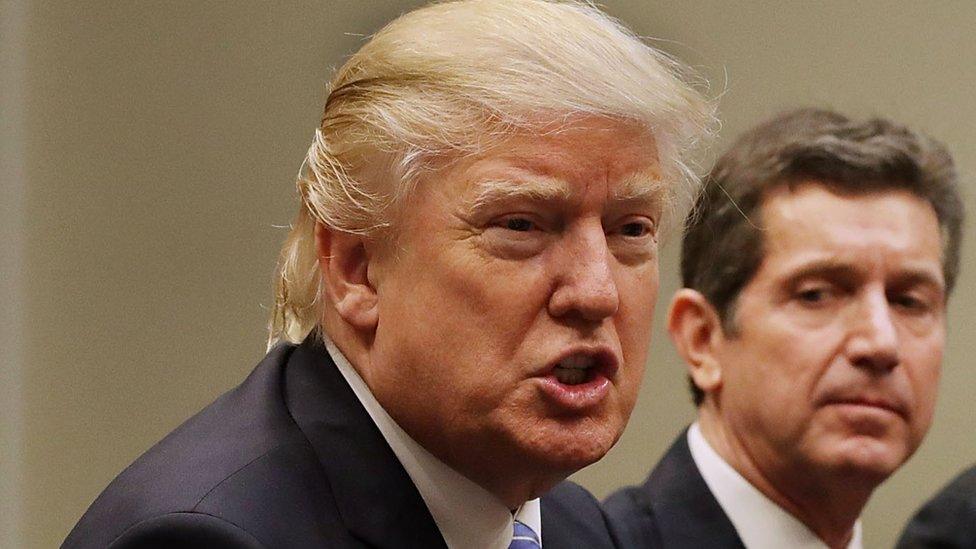
Pulling the US out of the world's biggest trade deal - the Trans Pacific Partnership - was always part of President Donald Trump's plans.
And already, union chiefs are cheering his move. , external
"The TPP and agreements like it would actually speed up China's growing dominance and give Beijing access to trade benefits without asking for anything in return," writes Richard Trumka, the president of the AFL-CIO, the US's largest labour federation in this morning's USA Today.
Sounds like a fine argument, except for one big problem.
China is not actually in the TPP, though it has quickly become the focus point of anger amongst many Americans about the loss of jobs in the US.
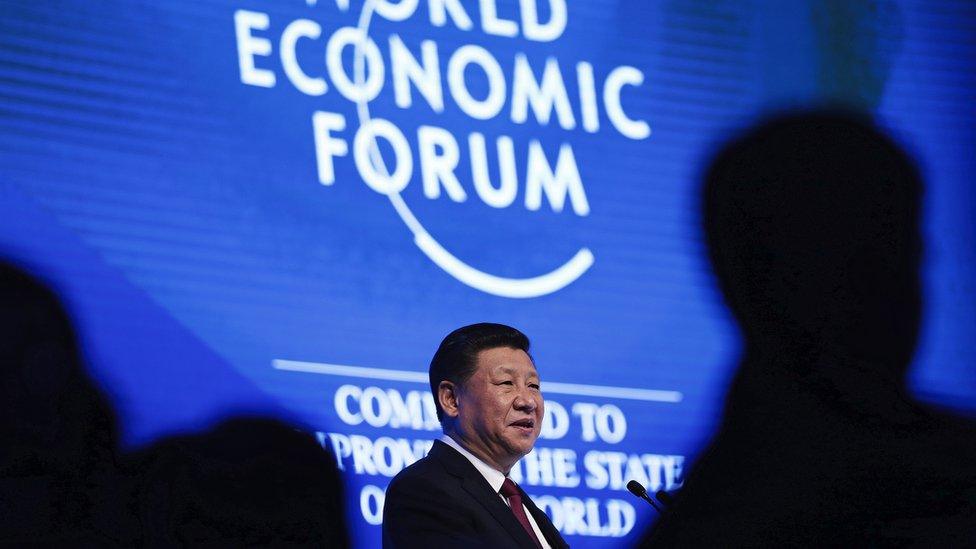
China's president Xi Jinping, the leader of the world's largest Communist Party, made anti-protectionism comments aimed at the US when he spoke at the World Economic Forum in Davos last week
And as I've written about before, the US could stand to lose far more in a trade war than other countries if Mr Trump sticks to this protectionist stance.
Trumpisms on the TPP: How true are they?
Before he came to office, and since, President Trump has had plenty to say about the TPP. But how much fact is there in those comments? Let's take a look at a few of them
1)"A great thing for the American worker, we just did"
So said President Trump in the Oval office as he signed the memorandum to pull the US out of the deal.
It is true that America has lost some factory jobs because of free trade.
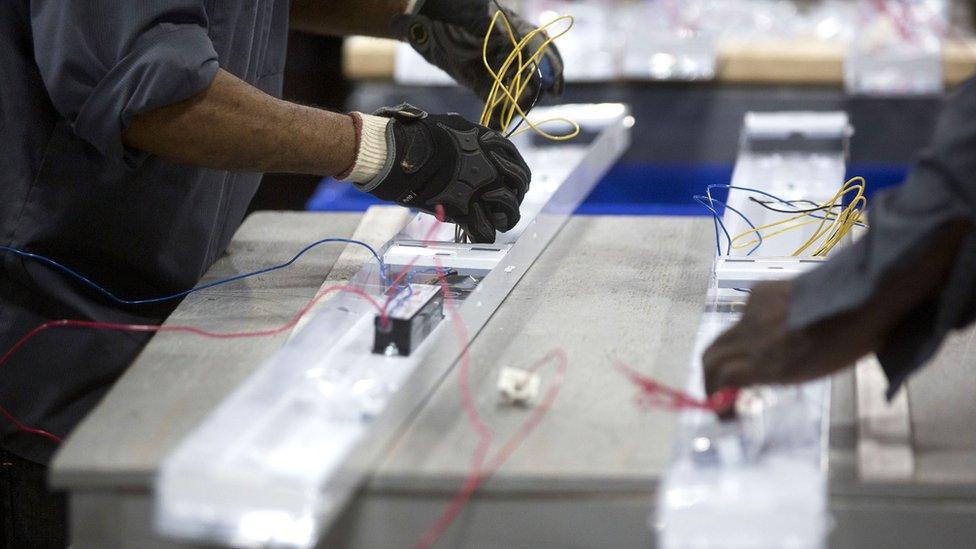
Many factory jobs once held by people are fulfilled now by robots
And when China joined the World Trade Organisation in 2001, the draw of cheap and flexible labour did mean that workers in the US were laid off.
But the reality is you can't turn back the clock - and those jobs aren't going to come back to the US no matter how much Mr Trump wills them to.
That's because they're not going to people.
They're going to robots.
A study at Ball State University's Center for Business and Economic research last year found that trade accounted for just 13% of America's lost factory jobs. 88% of the jobs were taken by robots.
Just take a look at the example provided by Apple's main supplier Foxconn in Taiwan.
It's replaced 60,000 factory workers with robots.
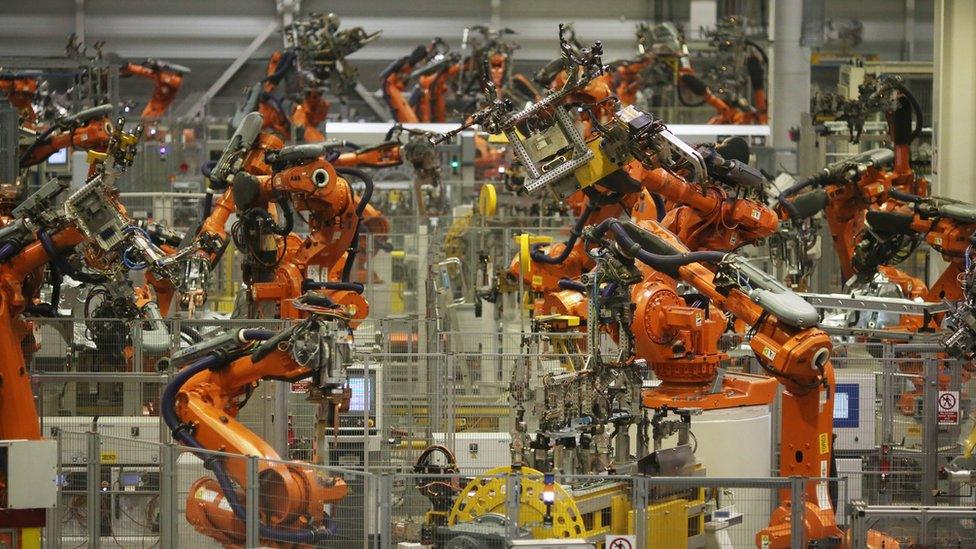
Robots don't get sick, complain or argue about unfair wages and labour practices - and they can work around the clock
In my reporting trips across China, I have heard similar business plans for the future.
Chinese manufacturers are automating their factories as a way to stay competitive in the future.
After all, robots don't get sick, complain or argue about unfair wages and labour practices. What's not to like?
So the theory that jobs will come flooding back to the US because it is no longer part of the TPP is inherently flawed.
2) "The Trans-Pacific Partnership is another disaster done and pushed by special interests who want to rape our country, just a continuing rape of our country."
It is true that the TPP was a secretive-ish deal, negotiated behind "closed-doors" - but frankly, most trade deals are, so how valid was this comment?, external
And it was a trade deal that arguably could have brought a lot of benefits to the US.
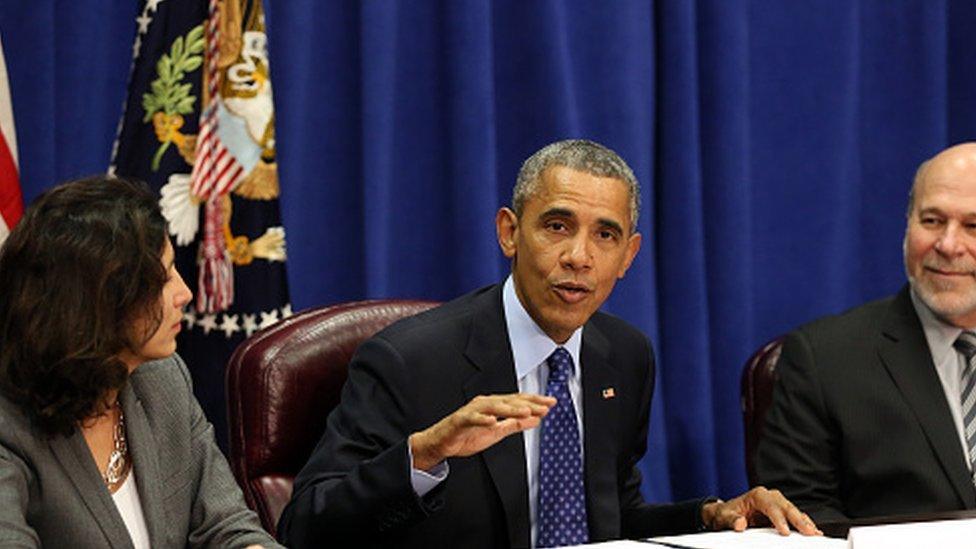
Then-President Barack Obama argued fiercely for the TPP and the benefits it would bring America
For example, the trade-friendly Peterson Institute for International Economics writes that "United States will be the largest beneficiary of the TPP in absolute terms"., external
It claimed that the TPP would increase annual real incomes in the US by US$131bn, or 0.5% of GDP.
According to these estimates then, Americans would have become richer, albeit marginally so, under the deal, and that the agreement would "raise US wages...but not change US employment levels".
3) "Not only will the TPP undermine our economy, but it will undermine our independence."
I'm not even sure what President Trump means with this statement, external, but perhaps it's got something to do with having the independence to choose who to trade with and how.
American companies would have been amongst the most to benefit from the deal, as they would have access to some of the world's fastest growing markets says Deborah Elms at the Asian Trade Centre.
At least 18,000 American products would have been covered under the TPP and would have been exported to other markets with few or zero tariffs.
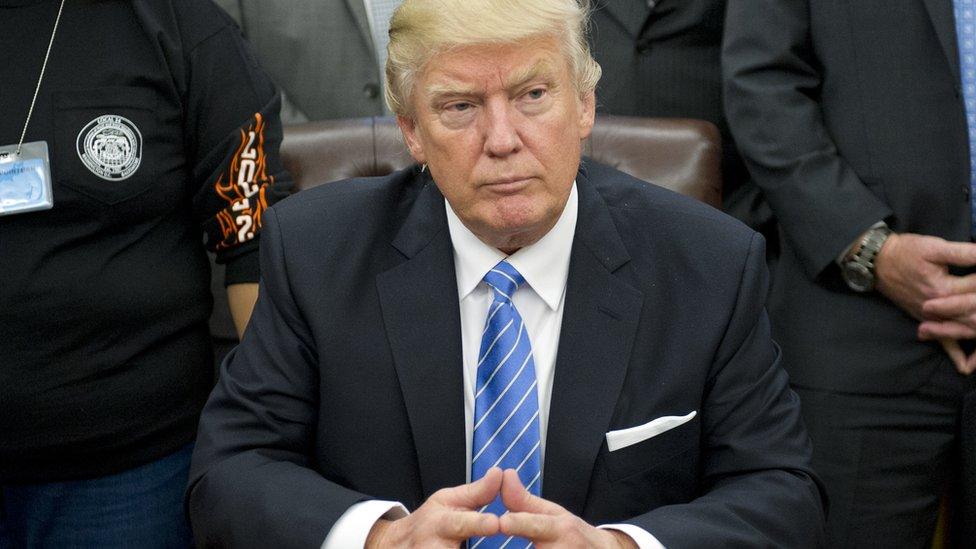
Analysts say Mr Trump's move to pull out of the TPP will see American companies lose out in Asia - and those losses will most certainly filter down to American workers
"The TPP is a better agreement with the Americans included," says Ms Elms of the Asian Trade Centre. "It was designed to fit a supply chain world and to more accurately meet the needs of companies than existing trade arrangements."
But, she adds, the game isn't over just because President Trump has pulled the plug on the deal. In this study, external, Ms Elms shows how the other TPP countries could go ahead without the US, and access the same benefits to the US even though it's not in the agreement.
"It will be American companies that lose out in Asia" she says. "And that will almost certainly filter down to American workers."
- Published23 January 2017
- Published16 January 2017
- Published22 December 2016